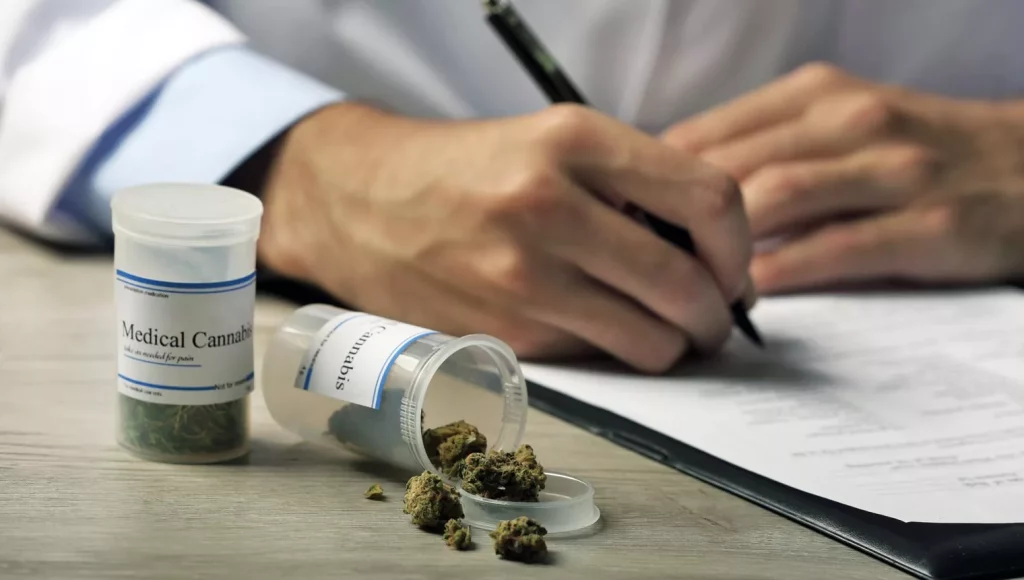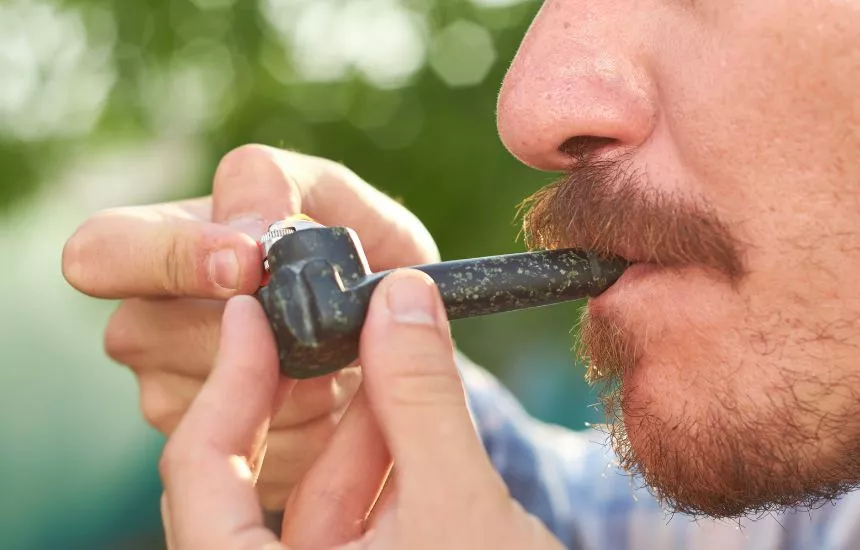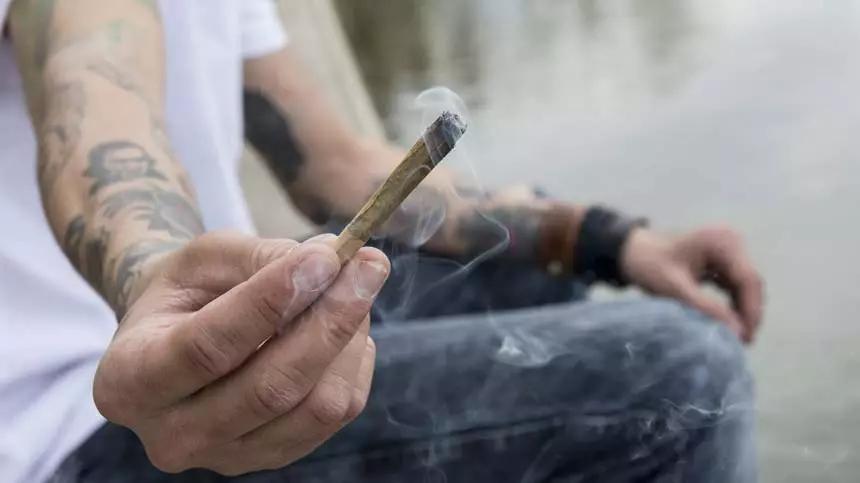What Kind Of Help Can I Find For Marijuana Use Disorder?
Table of Contents
- What Kind Of Help Can I Find For Marijuana Use Disorder?
- About Marijuana Use Disorder
- Criteria for Marijuana Use Disorder
- What Increases the Risk of Marijuana Use Disorder?
- What are the Effects of Marijuana Abuse?
- Marijuana Use and Lung Health
- Effective Forms of Marijuana Addiction Treatment
- FAQs on Marijuana Addiction Treatment
- Finding Treatment Now for Marijuana
- Medically Reviewed By
Marijuana is derived from the cannabis plant. In many states, marijuana is legal for both medical and recreational use. However, this does not mean that using marijuana is without risks. Like other addictions, marijuana use disorder can negatively affect finances, interpersonal relationships, work or school, and other parts of life. However, it’s possible to overcome the condition.
If you or someone you know lives with marijuana addiction or could be, read this article to learn more. Our guide will cover marijuana use disorders and marijuana addiction treatment, as well as review the signs that treatment could be helpful.
About Marijuana Use Disorder
Following alcohol and tobacco, marijuana is the most common illicit drug that people use in the United States. In the year 2018 alone, 11.8 million young adults in the country had used marijuana in the past year. The recreational use of marijuana continues to increase even for those who cannot consume it legally, such as high school students. Some people who use marijuana will go on to develop marijuana use disorder, though not all.
Marijuana use disorder is characterized by the ongoing use of marijuana despite it causing significant distress or impairment in important areas of life, such as work and school.
According to the National Institute on Drug Abuse, many adults who seek treatment for marijuana addiction have used marijuana daily for over ten years and have tried to quit more than six times.
The National Institute on Drug Abuse (NIDA) also says that it’s common for people with marijuana use disorders to live with another psychiatric disorder. Additionally, some individuals with the condition also use other substances.
Criteria for Marijuana Use Disorder
If you think that you might have a problem but aren’t sure, it can help to learn the signs. People with marijuana use disorder will have used cannabis for a minimum of one year. They will also present with two or more of the following symptoms, alongside previously mentioned impairments or distress:
- Cannabis is consumed in larger amounts or over longer periods of time than the individual intended.
- Unsuccessful efforts or a consistent desire to control or cut down cannabis use.
- Spending a great deal of time engaging in activities necessary to obtain, use, or recover from the effects of cannabis.
- A craving for, urge, or strong desire to use cannabis.
- Recurring use of cannabis results in failure to fulfill major obligations in the workplace, at school, or at home.
- Ongoing cannabis use despite experiencing persistent or recurring interpersonal or social problems caused or worsened by the effects of cannabis.
- Giving up or reducing important occupational, social, or recreational activities due to the use of cannabis.
- Recurring use of cannabis in circumstances in which the use of cannabis is physically hazardous.
- Continued cannabis use despite awareness of having a recurrent or persistent psychological or physical problem that’s likely worsened or caused by cannabis use.
- Tolerance, as defined by at least one of the following two symptoms:
- A need for a notable increase in the amounts of cannabis consumed in order to achieve the desired effect or level of intoxication.
- A marked diminished effect with the use of the same amount of cannabis.
- Withdrawals, as defined by at least one of the following two symptoms:
- Display of cannabis withdrawal syndrome (CWS).
- Taking cannabis or a closely related substance to avoid or find relief from symptoms of withdrawal.
At times, marijuana use disorder may also be referred to as cannabis use disorder. Marijuana use disorder can be mild, moderate, or severe. Those with mild marijuana use disorder experience two to three of the above symptoms, whereas individuals with moderate marijuana use disorder experience four to five, and those with severe marijuana use disorder experience six or more. Regardless of if someone has mild, moderate, or severe marijuana addiction, they deserve to get care.
What Increases the Risk of Marijuana Use Disorder?
The exact prevalence of marijuana use disorder is unknown, but research suggests that it is not at all uncommon. According to the CDC, one study found that three in every ten people who use marijuana meet the criteria for addiction. Another study found that it affects up to 10% of marijuana users.
What increases the likelihood of marijuana addiction? Here are four potential risk factors:
- Frequent use of marijuana
- Using marijuana during adolescence or youth
- Use of other drugs
- Other mental health conditions
While marijuana is often regarded as harmless, that is not the case, especially for those with marijuana addiction. There are notable effects of marijuana abuse that individuals and families should be aware of.
What are the Effects of Marijuana Abuse?
The SAMHSA website suggests that various negative effects can arise from marijuana use. Over time, extensive research on marijuana use has revealed a range of possible consequences of using marijuana.
Currently, the potential effects of marijuana abuse we know of include:
- Relationship problems. Marijuana can cause a range of relationship problems. It may lead to fights over finances and behavior, less time spent with loved ones such as romantic partners, and more.
- Cognitive or brain effects. These include but aren’t limited to the potential for loss of IQ and forgetfulness. A decrease in reactivity in the reward system in the brain is also noted in research on marijuana use.
- Worse educational and career outcomes. Cognitive effects and cravings might mean that marijuana use negatively impacts a person’s functioning at work or school.
- Dangerous driving. Marijuana slows your reaction time and affects coordination. No one should drive while under the influence of marijuana. In the case that someone does drive or operate heavy machinery while under the influence of marijuana, it can result in legal consequences or cause physical harm.
- Mental health effects. Some research suggests that there is a link between marijuana use and mental health concerns like anxiety, depression, and psychotic episodes. However, it’s unknown whether or not marijuana is the cause of these things.
- Athletic performance. Movement, timing, and coordination are all important for many sports, and marijuana use can negatively impact all of these areas.
- Risks during pregnancy or breastfeeding. For new parents and those who are currently pregnant, it is relevant to note that marijuana should not be consumed while breastfeeding or pregnant. Both of these things can adversely impact the baby.
Some considerations of marijuana misuse may also depend on the way an individual consumes marijuana. For example, the effects of marijuana on lung health.
Marijuana Use and Lung Health
One more potential concern with marijuana use is the health of an individual’s lungs. People ingest marijuana in different ways. If someone favors smoking marijuana, one more potential negative effect of marijuana use is poorer lung health.
Marijuana smoking is linked to large airway inflammation, chronic bronchitis, lung hyperinflation, and increased airway resistance. Inhaling marijuana smoke can also heighten the risk of lung infections.
Effective Forms of Marijuana Addiction Treatment
Treatment for marijuana addiction often entails therapy, as well as other interventions at times. You may attend treatment for marijuana addiction on an inpatient or outpatient basis. If you are in an inpatient or intensive outpatient program, you will often engage in a range of different therapies and other forms of support. Here are some of the most common marijuana addiction treatment options:
Motivational Enhancement Therapy (MET)
Motivational enhancement therapy (MET) is a person-centered therapeutic modality that aims to increase a person’s motivation to change. Because of this, MET is often used for substance abuse or substance use disorders.
Since many people with substance use disorders acknowledge the impact a substance has on their life but feel ambivalent or find it difficult to stop, this form of therapy can be particularly helpful. In addition to motivation, a therapist will work to empower the client, look at their behavior more objectively, work through obstacles, and make healthy changes.
Cognitive Behavioral Therapy (CBT)
Cognitive behavioral therapy (CBT) is a common form of therapy used for various mental health conditions and life concerns. One possible use of CBT is to treat marijuana addiction. CBT works by helping individuals modify unhelpful thought patterns.
This form of behavioral therapy also helps people find strategies that help them correct problematic behavior and use self-awareness to control urges. CBT may also help with challenges that pair with chronic marijuana use at times, such as anxiety or depression.
Contingency Management (CM)
Contingency management (CM) is a type of behavioral therapy. CM functions by providing individuals with rewards when they meet a goal or present desirable behavior. In this case, that might mean that someone is rewarded when they do not use or smoke marijuana.
The incentive or reward is withheld in the case that someone does not meet the goal or present desired behavior. Often, CM is used alongside other forms of therapy or treatment, like CBT or MET.
Other Forms of Support for Cannabis Use Disorders
Peer support, especially from other sober individuals, can be beneficial. You may be able to find peer support through support groups, most of which are free, and other avenues. If someone lives with another medical or mental health condition, they may discuss and get help for that matter as well during the course of marijuana addiction treatment.
For example, anxiety, depression, or insomnia can be common during withdrawal from marijuana. Especially if another mental health condition or concern is part of why someone abuses marijuana, addressing these symptoms can be crucial in recovery. If you use marijuana to cope with another part of your life, it’s critical to address these concerns with a medical or mental health provider.
It is possible to recover from marijuana addiction, and the right treatment can help. Don’t hesitate to explore your options. If you misuse more than one substance, find it hard to stop on an outpatient basis, or need dual diagnosis care, a treatment program may be more suitable than outpatient therapy alone. However, everyone is different.
Some people want to know what to expect when they first stop using marijuana. You may also wonder whether withdrawal symptoms can occur as a result of discontinued marijuana use. It’s not as scary as one might expect; let’s talk about what can happen.
What Can I Expect During Marijuana Withdrawal?
Withdrawal symptoms may occur during marijuana detox. In other words, while a person is discontinuing or stopping the use of the substance. Thankfully, withdrawal from marijuana abuse is not dangerous or deadly. That said, it can be uncomfortable and incredibly difficult psychologically.
Potential symptoms of marijuana withdrawal include:
- Difficulty sleeping
- Anxiety
- Decrease in appetite
- Low or depressed mood
- Irritability, anger, or agitation
- Nausea
- Restlessness
- Stomach pain
Not everyone experiences withdrawal symptoms when they discontinue the use of marijuana. Those who do may have an increased risk of marijuana addiction. At times, medications may be prescribed to ease withdrawal symptoms. While it can take time for withdrawal symptoms to dissipate, in time, they do.
FAQs on Marijuana Addiction Treatment
Is marijuana a gateway drug?
Some research indicates that people who use marijuana are significantly more likely to engage in the use of other illicit drugs. It is also suggested that those who use marijuana are not just more likely to engage in the use of other drugs but to be addicted to them. Substance use disorder treatment can help individuals who engage in the use of a range of different substances. Make sure that you are honest with your treatment team about the substances you use.
Is marijuana really addictive?
Although many people believe that they cannot become addicted to marijuana, that is not the case. It is very possible to experience an addiction to the substance, as noted in this article. Remember that people can misuse drugs of many different kinds, including those used for medical purposes. For example, prescription drugs.
What else should I know about marijuana addiction?
Though some are at a higher risk than others, marijuana use disorder can affect people of all demographics. Like alcohol, marijuana use is normalized, and it is a prevalent addictive substance. Don’t let this hold you back from pursuing treatment. You deserve to get help if you notice that marijuana addiction is causing problems in your life or otherwise leads to distress. Dual diagnoses are not uncommon for those with marijuana addiction. An individualized treatment plan can help you meet your unique goals and overcome the challenges you face.
Finding Treatment Now for Marijuana
If you or someone you know needs treatment for marijuana use disorder, you’re not alone. At Find Addiction Rehabs, we make it easier for people to find treatment for substance abuse and addiction.
We can help you find treatment for yourself or a loved one. Whether you want to locate addiction treatment programs in your area or learn more about recovery tools and resources, our hotline is available 24/7.
If you’re ready to take the first step toward recovery from marijuana addiction or another substance use disorder, call Find Addiction Rehabs now!
Deborah Tayloe is a freelance writer specializing in health and sciences. Deborah earned a B.S.Ed. in Secondary Education/English, accompanied by a Spanish minor. Her writing expertise allows her to craft engaging, impactful articles to help people be well.
In addition, she holds a fully accredited Certificate of Natural Medicine and is a certified Herbalist. Through her understanding of complementary medicine, Deborah helps medical professionals give people the information they need to embrace natural approaches to wellness.
When she’s not working, Deborah trains for 5K races and advocates for animal rights.





